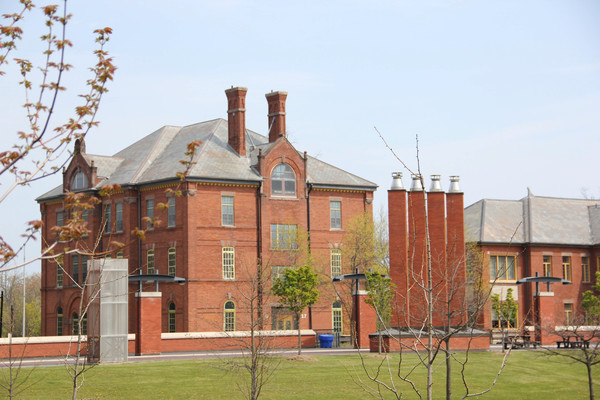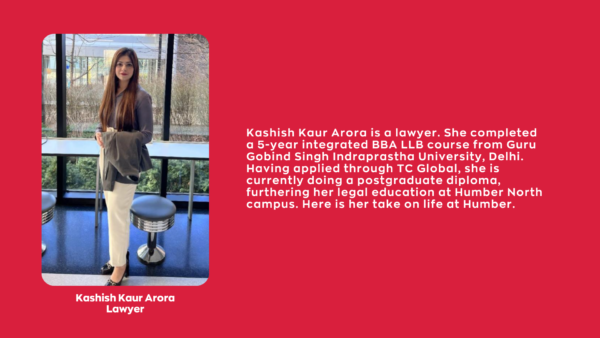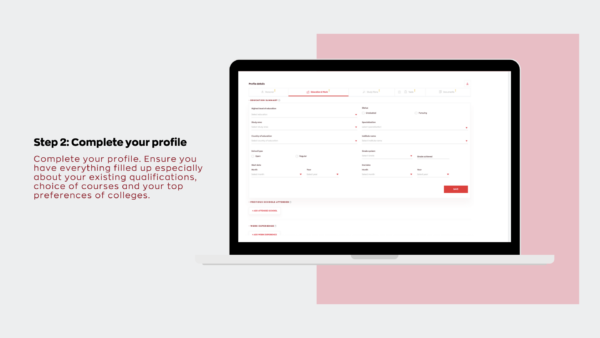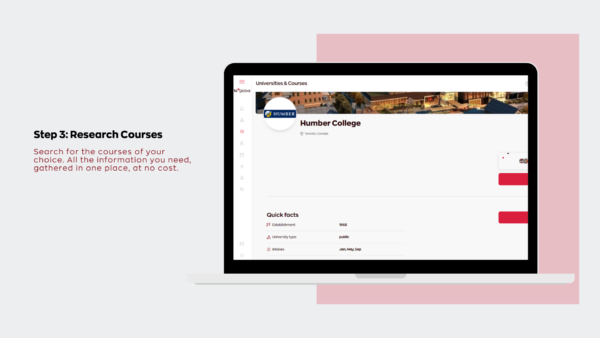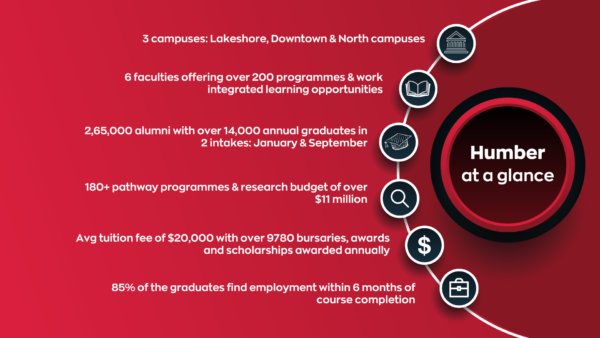 Founded in 1967, Humber College Institute of Technology & Advanced Learning, also known as Humber College, offers globally recognised post-secondary education opportunities. In addition to the teaching-learning set up, the college is also renowned for its applied research and entrepreneurship. One of the top research colleges in Canada, Humber has secured the 15th position overall when it comes to applied research. The college also ranks 4th when looking at “Paid Student Researchers” and 6th in the country for “Research Partnerships” in 2023. Source: Research InfoSource Inc)
Founded in 1967, Humber College Institute of Technology & Advanced Learning, also known as Humber College, offers globally recognised post-secondary education opportunities. In addition to the teaching-learning set up, the college is also renowned for its applied research and entrepreneurship. One of the top research colleges in Canada, Humber has secured the 15th position overall when it comes to applied research. The college also ranks 4th when looking at “Paid Student Researchers” and 6th in the country for “Research Partnerships” in 2023. Source: Research InfoSource Inc)
Humber’s Vision and Mission
Using the words of the institution, Humber’s vision is to “transform post-secondary education through global, polytechnic leadership”. Its mission is to develop “global citizens with the knowledge and skills to lead and innovate.” The institution surges ahead in global education and research by building on the values of courage, innovation, equity, well-being and sustainability. The proof of its commitment to its values is shown by its recognition as one of Canada’s greenest employers for 6 consecutive years and its designation as a Fair Trade Campus for promoting social and environmental sustainability and innovation.
Intake: January and September
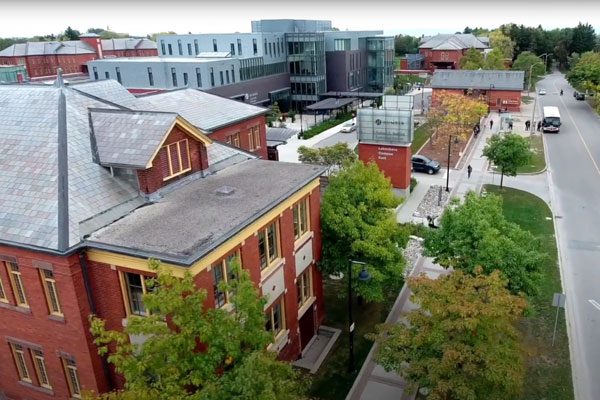
Source: Humber
Faculties and Courses
A faculty is essentially a division within a college comprising one discipline, a subject area or a group of related subjects. Typically, a faculty (also referred to as a school) can have multiple departments functioning under it. The 200+ courses at Humber are offered by one or more of the following faculties.
- Faculty of Applied Sciences & Technology
- Faculty of Business
- Faculty of Media & Creative Arts
- Faculty of Liberal Arts & Sciences and Innovative Learning
- Faculty of Social & Community Services
- Faculty of Health Sciences & Wellness
The courses range from Accounting to Workplace Health and Wellness, Bachelor of Health Sciences. You can access the entire list of courses on humber.ca. As mentioned in the introduction, Humber offers courses with the following possible credentials.
Ontario College Graduate Certificate (OCGC):
Equivalent of a postgraduate diploma. You must have completed your bachelor’s degree or equivalent to apply for this course.
Honours Degree:
Baccalaureate or a bachelor’s degree. It is typically 4 years (8 semesters) long and has a minimum credit requirement of 120.
Ontario College Advanced Diploma:
Can be applied to after high school. The courses are typically 3 years long. On completion, you can either transfer to an advanced semester of a bachelor’s programme, apply for a postgraduate diploma or enter the workforce.
Ontario College Diploma:
A 2-year programme, this prepares students for entry-level employment. Compared to a bachelor’s degree, a diploma is more technical, application oriented and practice-based. On completion, this diploma also allows you to transfer to an advanced semester of a bachelor’s course.
Ontario College Certificate:
a 1-year course, this allows you to specialise in a niche area/ topic or get the basics of a particular discipline. The credits of a certificate course can be transferred to your diploma or UG course.
Certificate of Achievement:
Ranging from 2-4 months, it is a short course designed to give you foundational knowledge on a particular subject. The credits from this course are non-transferable.
Note:
Many of Humber’s programmes also work as pathway programmes that will help you gain a direct entry to a university. They work as preparatory courses for your bachelor’s or master’s degree. For instance, the OCGC course on Entrepreneurial enterprise and business management serves as a pathway to an advanced placement in M.Sc in International Business or Management at the Robert Gordon University in Aberdeen, Scotland.
College, not University
While you can use college and university interchangeably to refer to institutions of higher education in some countries, it is not the case in Canada. The highest degree a Canadian college can award is the bachelors. They also have full-time or part-time diploma and certificate courses. College courses are more practical, application and career oriented, when compared to a university.
In contrast, universities are much larger institutions that grant degrees. They confer Bachelor’s,
Master’s or even Doctoral degrees. A university is typically more research and knowledge oriented than career based.
That said, Humber College has collaborated with a university to form the University of Guelph-Humber. Opened in 2002, it is the first of its kind in Ontario to provide both a university bachelor’s degree and a diploma with four years of full-time study. The goal of UoGH is to integrate experiential learning with a more traditional academic curriculum. You can earn dual credentials at the undergraduate level in the following fields.
- Business
- Early childhood studies
- Community Social Services
- Justice Studies
- Kinesiology
- Media and communication studies
- Psychology
Location
Humber North Campus: 205 Humber College Blvd, Etobicoke, ON M9W 5L7
Lakeshore Campus: 2 Colonel Samuel Smith Park Drive, Toronto, ON, M8V 4B6
Downtown Toronto Campus: 59 Hayden St Unit 400, Toronto, ON M4Y 2P2
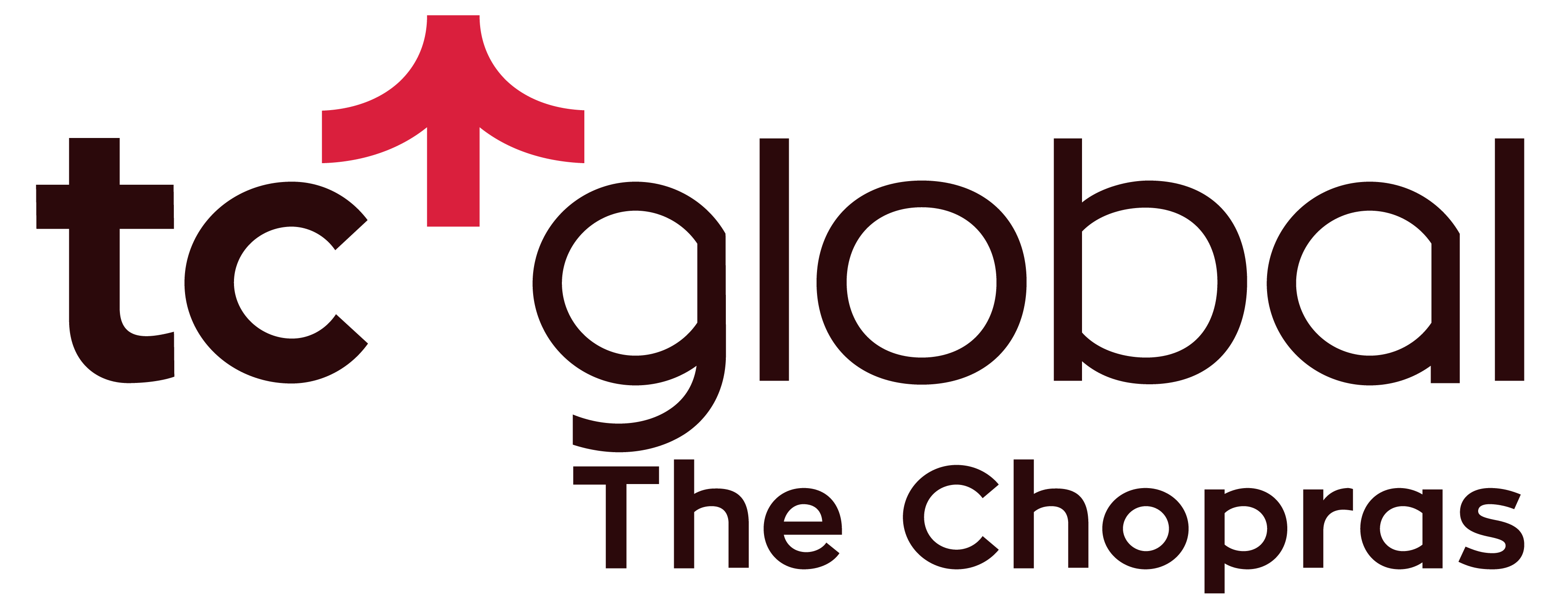
 Founded in 1967, Humber College Institute of Technology & Advanced Learning, also known as Humber College, offers globally recognised post-secondary education opportunities. In addition to the teaching-learning set up, the college is also renowned for its applied research and entrepreneurship. One of the top research colleges in Canada, Humber has secured the 15th position overall when it comes to applied research. The college also ranks 4th when looking at “Paid Student Researchers” and 6th in the country for “Research Partnerships” in 2023. Source:
Founded in 1967, Humber College Institute of Technology & Advanced Learning, also known as Humber College, offers globally recognised post-secondary education opportunities. In addition to the teaching-learning set up, the college is also renowned for its applied research and entrepreneurship. One of the top research colleges in Canada, Humber has secured the 15th position overall when it comes to applied research. The college also ranks 4th when looking at “Paid Student Researchers” and 6th in the country for “Research Partnerships” in 2023. Source: 


